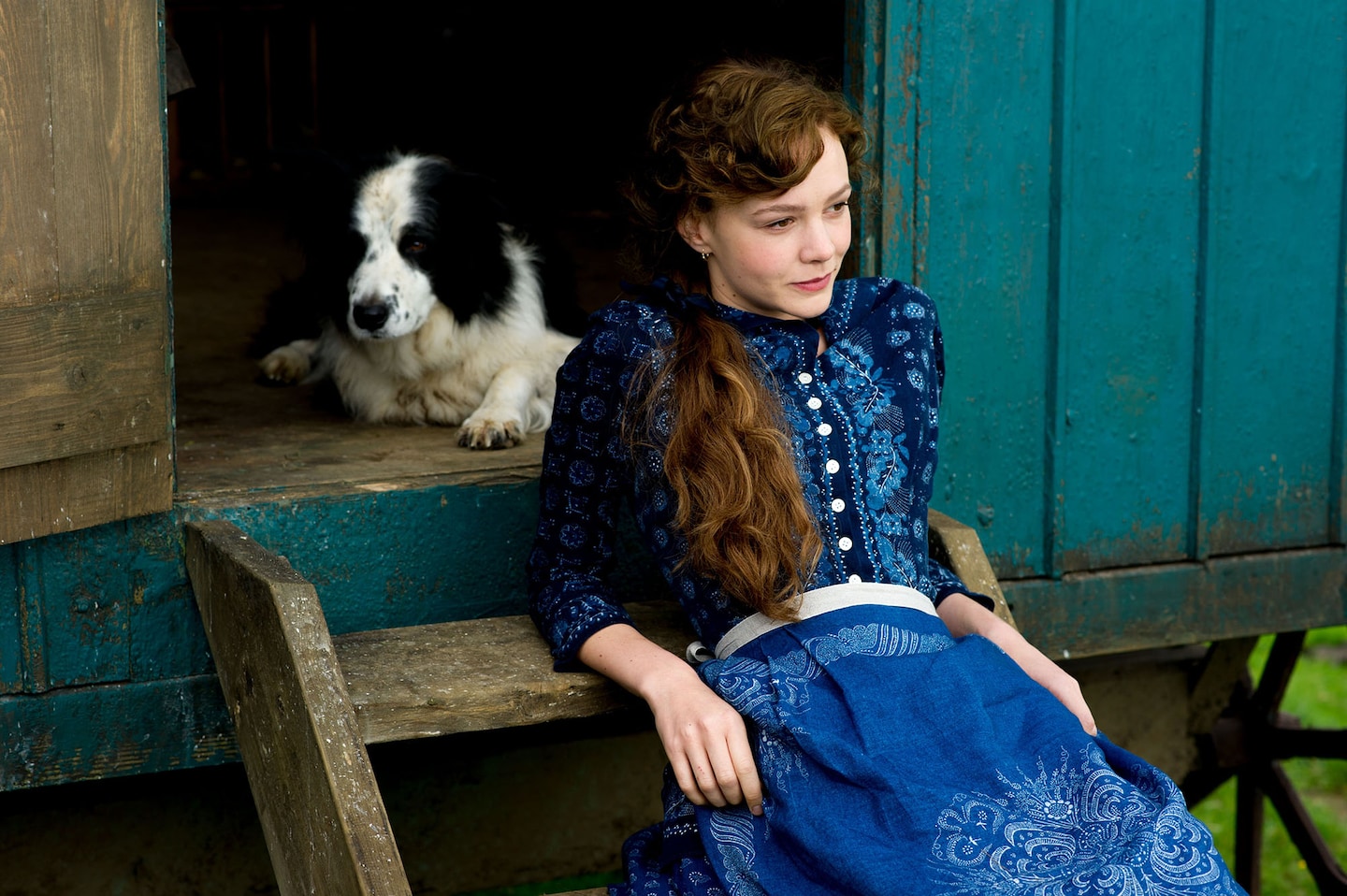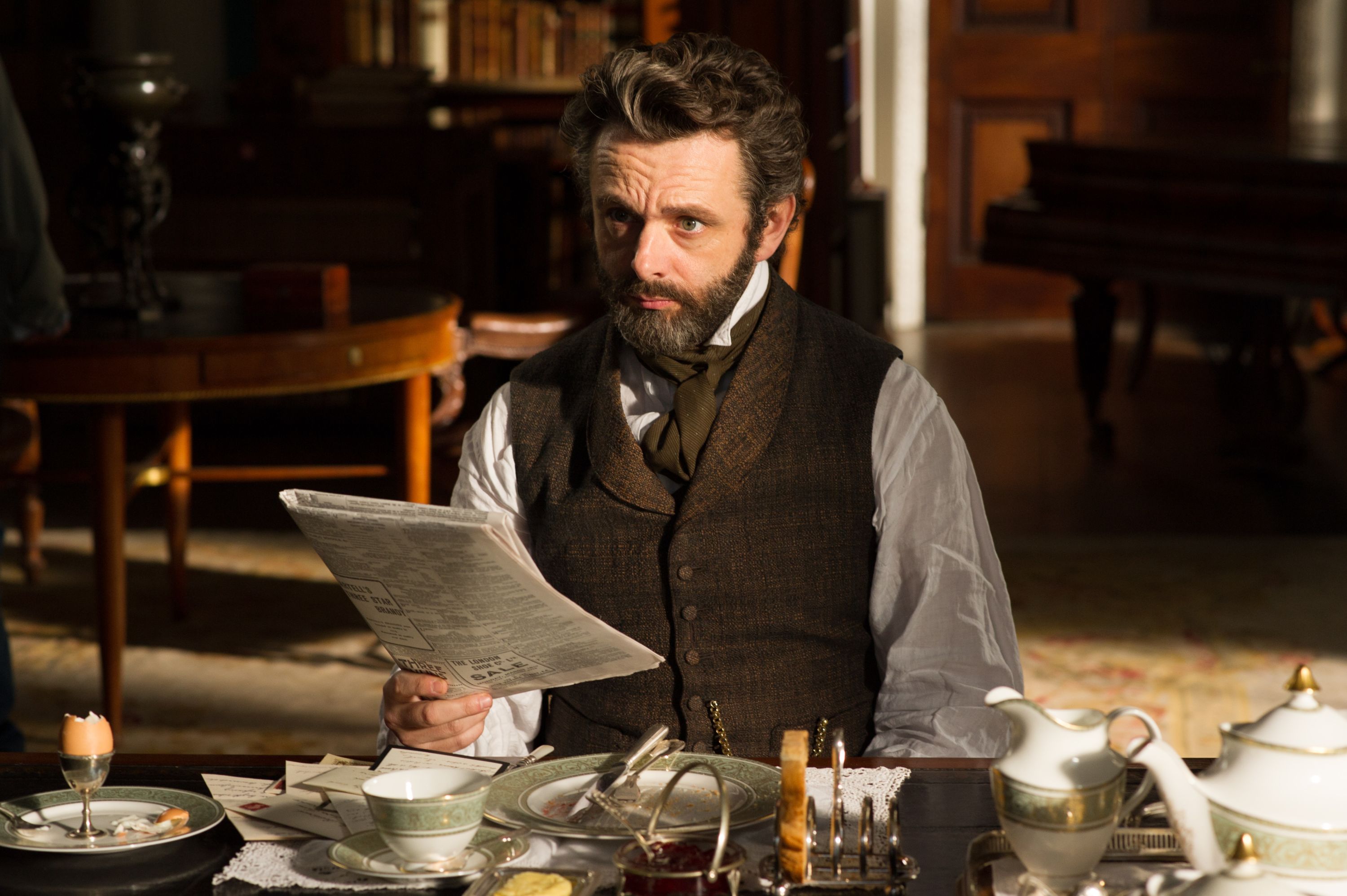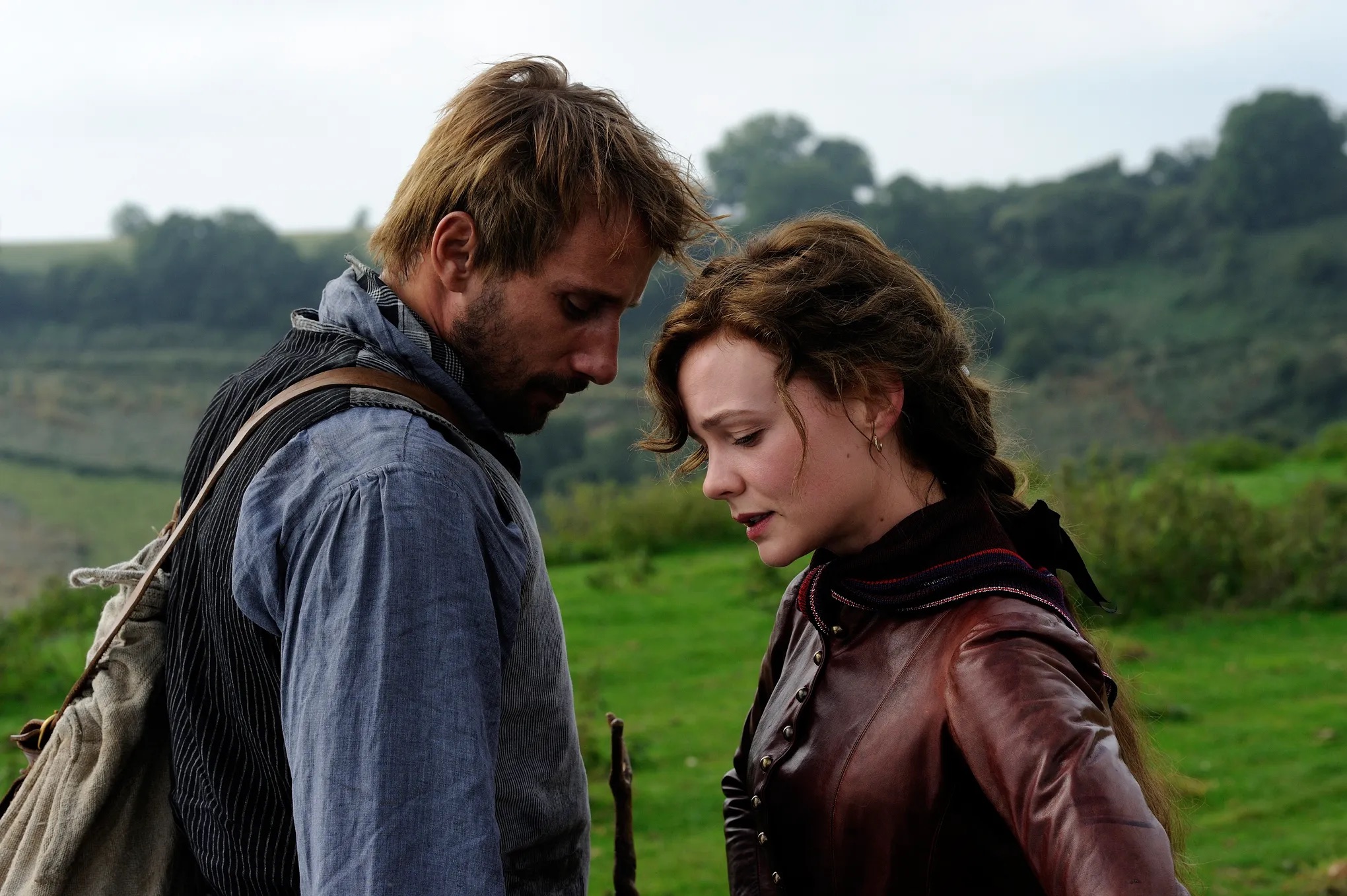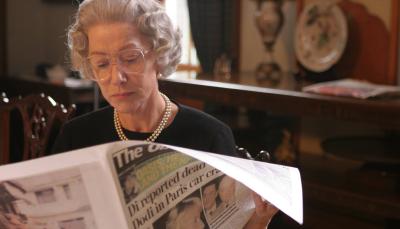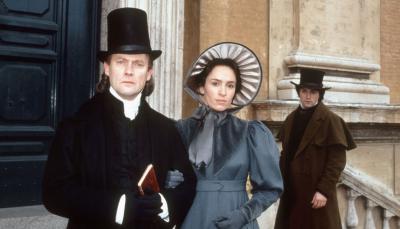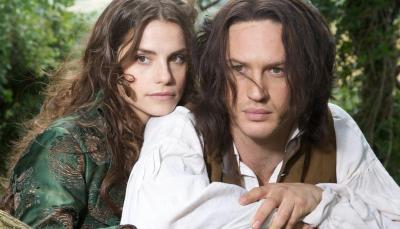'Far From the Madding Crowd' Puts a Satisfyingly Modern Spin on Thomas Hardy's Romantic Love Letter to Rural Life
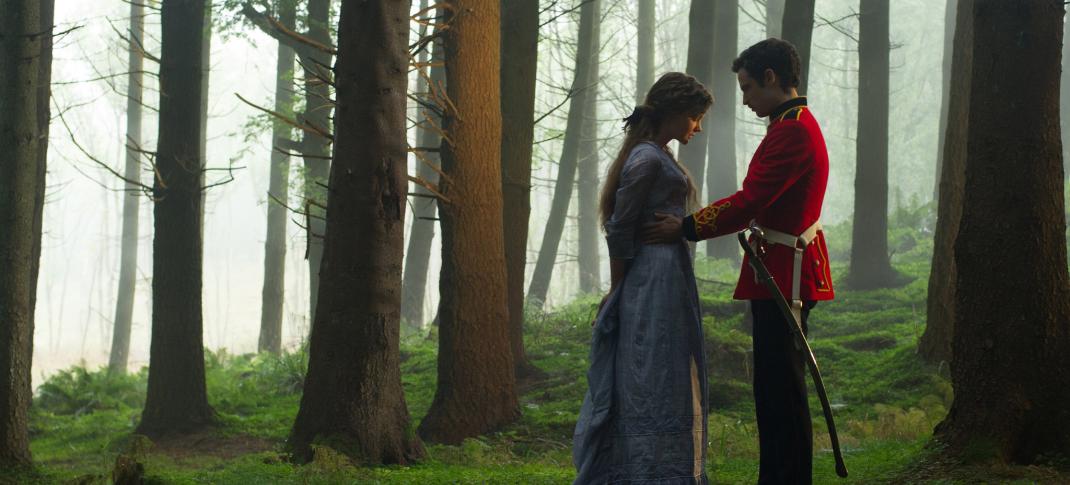
Carey Mulligan and Tom Sturridge in "Far From the Madding Crowd"
(Photo: Searchlight Pictures)
For all that Thomas Hardy's novels are now considered classics of English literature, they were remarkably modern, forward-thinking texts at the time of their publication. His works feature complex female protagonists and often focus on controversial issues, including sex, religion, marriage, and education. Rather than idolize the Victorian era, Hardy did his best to explore how social constraints frequently limited the lives of ordinary people, and the decline of life in rural England. Far From the Madding Crowd was his fourth novel but first commercial success, a story set against the seemingly idyllic backdrop of a farming community that deals with the harsh realities those living in this picturesque world often face.
The 2015 feature film adaptation of Hardy's work, helmed by Danish director Thomas Vinterberg, condenses many of the novel's broader themes, streamlining its story into a more straightforward and easily digestible romance tale. But visually, this Far From the Madding Crowd embraces much of the author's favored aesthetic, crafting a lush version of late nineteenth-century Wessex teeming with bright colors, abundant life, and plenty of natural light. Its farmlands feel lived in and accessible, full of both beauty and the threat of danger, and it's clear how interconnected this land and the characters living in it are to one another, whether they want to be or not. Thus, grounded in the rhythms and cycles of farm life seems to permit the film to be a bit transgressive, abbreviating the text in specific ways that may spell things out for viewers too often but still give the characters space to breathe and grow.
In its most basic sense, the story follows an independent-minded young woman who inherits a farm and decides to run it herself, declaring that she does not need a husband. Of course, this means she ends up with three different suitors and must grow up and learn herself enough to choose between them, and all manner of consequences ensue, for everyone involved. Quietly, yet radically feminist and featuring the rarest of all Hardy narrative choices (a happy ending), Far From the Madding Crowd still feels painfully modern, even hundreds of years later. Are there things it could do better? Absolutely. (Poor Juno Temple deserved so much more than a chance to show up onscreen for five minutes and die.) But it gets much of the story's spirit right, which must count for something.
Bathsheba Everdene's name probably sounds familiar to people who've never read Thomas Hardy's book. Author Suzanne Collins gave The Hunger Games heroine Katniss a variation of her last name in homage to her as a fellow young woman who often struggled with knowing her own heart. Because the truth is, as a character, Bathsheba is unlike any other heroine of her era. She's impetuous, headstrong, and independent in ways that are hard not to immediately love, and her determination to plot her future without caring what those around her think is a luxury that many (most?) of her contemporary literary sisters do not have.
A woman who, thanks to wealth and providence, can remain unmarried, make her own choices, run a farm on her own, and be respected (or, at least, treated) as a boss and a landowner. She has such freedom and agency but still has little understanding of the consequences of her actions. Actress Carey Mulligan infuses her with a compelling charm and brisk directness that speaks of a woman who knows her own mind — even when her actions don't always back that assumption up. She's not always likable, but she's fascinating to watch.
Throughout the film, Mulligan's Bathsheba walks a fine line between admirable and awful, and her character has plenty of flaws. The same independent streak that makes her such a compelling heroine also can occasionally make her a terrible person --- she's frequently selfish and self-centered, downright brutal in her refusals to the various men who propose to her. The alleged "prank" she plays on William Boldwood feels deliberately cruel, and the film gives us precious little motivation (beyond sheer boredom) for why she'd send a fake provocative Valentine to a man she barely knows and isn't especially interested in beyond mockery—her infatuation with Sgt. Frank Troy lacks the self-awareness she applies to almost every other situation, and watching her give in so quickly to such an obvious cad is somehow both tragic and vaguely cringe-worthy.
One of the most interesting choices this particular adaptation makes is how it handles the character of William Boldwood. A wealthy, older (I mean, not that by much the man is like forty) neighbor of Bathsheba's, he's rumored to have been jilted by love in the past and remains unmarried despite his generally eligible nature. In Hardy's novel, Boldwood has serious stalker vibes, a man who drives himself insane over a woman he wants but can't have. He's not an option that Bathsheba could (or should!) genuinely consider.
But the 2015 film softens Boldwood considerably, turning the character into a lonely, socially awkward gentleman who seems to have more than made his peace with a life without much in the way of love in it, at least, until he receives an unexpected Valentine from his new neighbor, who has never given him any reason to doubt that her interest is genuine. (Or she's a woman who plays cruel tricks on a stranger she barely knows.) His proposal is authentic, and the film takes pains to present him as a decent, kind, romantic alternative, albeit one that lacks the overt passion that Frank Troy will introduce to our heroine's life.
Part of this is likely due to the unexpected warmth of Michael Sheen's performance, which reimagines Boldwood as more of someone you'd like to hug or push a cup of tea on than the obsessive creep we see in the original story. But — and it may be because I am a bit older now than the last time I saw this movie, have gotten married, and have gone through my own Sgt. Troy phase already — there's something about this particular incarnation of the character that honestly feels like a safe, decent choice and might deserve more consideration than Bathsheba gives him — just saying.
Bathsheba will ultimately end up with the supportive sheepherder Gabriel Oak, whose very name conveys the sense of sturdiness and purpose that the story eventually decides is what its heroine truly needs. He's always there, always supportive, can't ever seem to leave even when he wants to try to do so, and repeatedly puts Bathsheba's needs above his own. It's not awful, and as plenty of other literature from this period reminds us, she could do much worse.
To his credit, he respects her fire and independence in a way that won't require her to become lesser to be with him. That's no small thing. But it's also true that Gabriel is more attractive as an idea than a person. His personality is only sketched out in the vaguest of terms, and he has no real arc throughout the film. He begins the movie by proposing to Bathsheba and ends it the same way — the difference is that Bathsheba and her answer change. Gabriel's steadiness is likely the primary reason he's the perfect choice for her, but it doesn't make him particularly deep or compelling to watch. He's also, not for nothing, kind of a terrible sheep farmer, given how many of his charges die or contract potentially deadly illnesses.
But despite the generally dull and deeply predictable nature of Gabriel as the story's ultimate romantic choice, it doesn't necessitate the importance and quiet power of the fact that Bathsheba gets to choose for herself. So many women aren't granted that opportunity, whether for good or ill. But Far From the Madding Crowd never denies Bathsheba the gift of her own agency, and even when she's making terrible decisions, we should be celebrating this classic's inclusion of the very modern idea that she ought to be allowed to make them at all.
Far From the Madding Crowd is streaming on Max.

